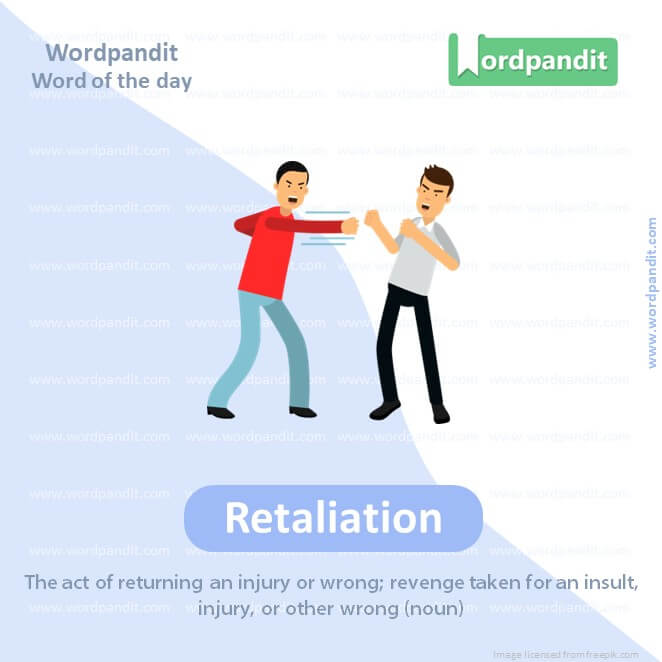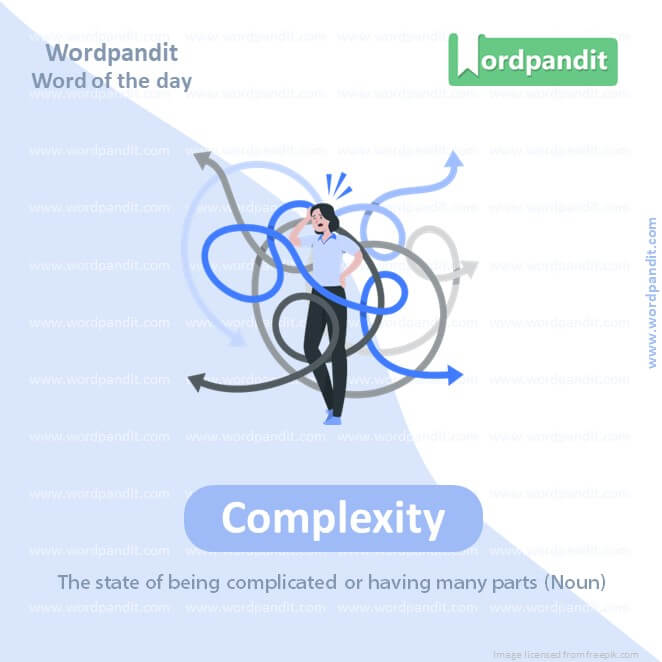Daily Vocabulary Words: List of Daily Used Words in Leading International Newspapers
Hi there. Welcome to this special section @ Wordpandit.
Our endeavour here is very simple: to highlight important daily vocabulary words, which you would come across in leading newspapers in the country. We have included the following newspapers in our selection:
• The New York Times
• The Washington Post
• Scientific American
• BBC
• The Guardian
• Psychology Today
• Wall Street Journal
• The Economist
We are putting in extensive work for developing your vocabulary. All you have got to do is be regular with this section and check out this post on a daily basis. This is your repository of words that are commonly used and essentially, we are posting a list of daily used words. Hence, this has significant practical application as it teaches you words that are used commonly in leading publications mentioned above.
Visit the website daily to learn words from leading international newspapers.
WORD-1: Retrospect
CONTEXT: that we’ve achieved what appears to be a better-than-Goldilocks soft landing, Bidenomics looks pretty good in retrospect.
SOURCE: New York Times
EXPLANATORY PARAGRAPH: Imagine looking through a big photo album that shows all the fun places you’ve been and things you’ve done in the past. When you think about these memories and what they mean, you’re doing something like what “retrospect” means. It’s like using your mind to travel back in time and think about things that happened before.
MEANING: The act of thinking about the past or something that happened in the past (noun).
PRONUNCIATION: reh-truh-spekt
SYNONYMS: reflection, reminiscence, recollection, review, hindsight, contemplation, remembrance
USAGE EXAMPLES:
1. In retrospect, I realize I should have taken the advice my teacher gave me.
2. She often thought in retrospect about her childhood days.
3. The decision seemed wise in retrospect.
4. They looked back in retrospect at the events of the past year.

WORD-2: Resurgent
CONTEXT: I believe that the risk of an economic slowdown is much higher than that of resurgent inflation and that rate cuts should come sooner rather than later.
SOURCE: New York Times
EXPLANATORY PARAGRAPH: Imagine your favorite superhero getting knocked down, but then they stand up, even stronger than before, ready to save the day again. That’s what “resurgent” means – something or someone becoming strong and popular again after being down or not noticed for a while.
MEANING: Increasing or reviving after a period of little activity (Adjective).
PRONUNCIATION: re-sur-jent
SYNONYMS: revived, renewed, revitalized, reborn, rejuvenated, reinvigorated, revitalized
USAGE EXAMPLES:
1. The resurgent team won the championship after many years of not performing well.
2. Interest in the traditional art form is resurgent.
3. The resurgent economy showed signs of improvement.
4. The band’s resurgent popularity brought them new fans.

WORD-3: Intimidation
CONTEXT: The rethinking underway signals an awareness that we can no longer allow Iran to try to drive us out of the region, Israel into extinction and our Arab allies into intimidation by acting through proxies.
SOURCE: New York Times
EXPLANATORY PARAGRAPH: Think about a time when a bigger kid at the playground made you feel scared to play on your favorite swing. That feeling of being scared because someone is being really mean or threatening is what “intimidation” means. It’s not nice to make others feel this way.
MEANING: The act of frightening someone to make them do what you want (noun).
PRONUNCIATION: in-tim-ih-day-shun
SYNONYMS: bullying, threatening, coercion, terrorization, menace, harassment, fearmongering
USAGE EXAMPLES:
1. The teacher addressed the issue of intimidation in the classroom.
2. He felt a sense of intimidation when he spoke in front of the large crowd.
3. Intimidation tactics were used by the group to influence decisions.
4. She stood up against the intimidation at work.
WORD-4: Inclusivity
CONTEXT: Adults and teenagers alike are more aware of the importance of inclusivity and more attuned to the seriousness of subjects that used to be treated as fodder for jokes.
SOURCE: New York Times
EXPLANATORY PARAGRAPH: Imagine inviting every kid in your class to your birthday party, no matter if they’re different from you or like different things. “Inclusivity” is when everyone is included and welcome to join in, no matter who they are or where they come from. It’s like making sure everyone has a place at the party table.
MEANING: The quality of including all types of people and treating them all fairly and equally (noun).
PRONUNCIATION: in-kloo-siv-ih-tee
SYNONYMS: diversity, acceptance, openness, integration, broad-mindedness, equality, universality
USAGE EXAMPLES:
1. The program was praised for its inclusivity.
2. Inclusivity in the workplace ensures everyone feels valued.
3. The event was designed with inclusivity in mind.
4. They discussed ways to improve inclusivity in the community.
WORD-5: Blithely
CONTEXT: the Houthis and Shiite militias in Iraq — while Tehran blithely sits back and pays no price.
SOURCE: New York Times
EXPLANATORY PARAGRAPH: Imagine walking through a puddle without worrying about getting your shoes wet, singing a happy song, and not caring about the mud. “Blithely” is when you’re happy and carefree, not worried or bothered by anything around you. It’s like being super happy and not letting anything make you sad.
MEANING: In a way that shows a casual and cheerful indifference considered to be callous or improper (adverb).
PRONUNCIATION: bly-thlee
SYNONYMS: carelessly, heedlessly, nonchalantly, unconcernedly, casually, lightly, indifferently
USAGE EXAMPLES:
1. He blithely ignored the warning signs.
2. She blithely went about her day, unaffected by the bad news.
3. They blithely accepted the challenge without considering the risks.
4. The child blithely played in the rain.

WORD-6: Retaliation
CONTEXT: On one track would be a strong and resolute stand on Iran, including a robust military retaliation against Iran’s proxies and agents in the region in response to the killing of three U.S. soldiers at a base in Jordan by a drone apparently launched by a pro-Iranian militia in Iraq.
SOURCE: New York Times
EXPLANATORY PARAGRAPH: Imagine someone takes your favorite toy, and you decide to take theirs to make it even. “Retaliation” is when someone does something mean or hurtful back to someone else because they were hurt first. It’s like saying, “You did this to me, so I’ll do it back to you.”
MEANING: The act of returning an injury or wrong; revenge taken for an insult, injury, or other wrong (noun).
PRONUNCIATION: reh-tal-ee-ay-shun
SYNONYMS: revenge, retribution, reprisal, vengeance, payback, counterattack, reciprocation
USAGE EXAMPLES:
1. The strike was a form of retaliation for the unfair treatment.
2. They feared retaliation if they spoke up.
3. Retaliation against the policy change was swift.
4. The government warned against any acts of retaliation.

WORD-7: Metastasize
CONTEXT: And if we don’t see such a big, bold doctrine, the crisis in the region is going to metastasize in ways that will strengthen Iran, isolate Israel and leave America’s ability to influence events there for the better in tatters.
SOURCE: New York Times
EXPLANATORY PARAGRAPH: Imagine a small spot of paint on a big piece of paper. If you add water, the paint starts to spread out all over the paper. “Metastasize” is a word doctors use to describe how something bad in the body, like a sickness, can start in one spot and then spread to other parts, just like the paint.
MEANING: Spread to other parts of the body, usually referring to disease (verb).
PRONUNCIATION: meh-tas-tuh-size
SYNONYMS: spread, disseminate, propagate, proliferate, diffuse, expand, migrate
USAGE EXAMPLES:
1. The doctors were concerned the cancer might metastasize.
2. Early detection can prevent cancer from metastasizing.
3. Research focuses on how to stop cancer cells from metastasizing.
4. The tumor had metastasized to other organs.
WORD-8: Perceptible
CONTEXT: there’s been a perceptible shift in Republicans’ messaging away from the economy (although they’re still claiming it’s terrible) to immigration — I’ll talk about their remarkably cynical strategy on that issue another day.
SOURCE: New York Times
EXPLANATORY PARAGRAPH: Imagine you’re playing hide and seek, and you can just barely hear the sound of your friend giggling from their hiding spot. That small sound you can hear? That’s what “perceptible” means – something that is just enough for you to notice or feel, even if it’s really, really tiny or quiet.
MEANING: Able to be seen, heard, or felt; especially so slight as to be difficult to perceive (adjective).
PRONUNCIATION: per-sep-tuh-bul
SYNONYMS: noticeable, detectable, observable, discernible, evident, visible, apparent
USAGE EXAMPLES:
1. There was a perceptible change in his mood.
2. The difference in quality was barely perceptible.
3. She showed a perceptible hesitation before answering.
4. A perceptible improvement was noted after the treatment.
WORD-9: Overextended
CONTEXT: It is losing the ability to keep Israel safe without being overextended in the long term — by invading Gaza without any plan for how to find a legitimate non-Hamas Palestinian partner to effectively govern there so Israel can pull back.
SOURCE: New York Times
EXPLANATORY PARAGRAPH: Imagine trying to carry all your toys at once – your arms are stretched out too far, and it’s really hard to hold onto everything without dropping something. “Overextended” means trying to do too much at once, like having too many chores or homework, making it hard to do everything well.
MEANING: Extended or expanded beyond a safe or reasonable point; especially financially (adjective).
PRONUNCIATION: oh-ver-ex-ten-ded
SYNONYMS: overstretched, overstrained, overloaded, overburdened, overcommitted, stretched thin, exhausted
USAGE EXAMPLES:
1. They found themselves overextended with too many projects.
2. The company was overextended and faced financial difficulties.
3. She felt overextended by her work and social commitments.
4. To avoid being overextended, he declined additional responsibilities.

WORD-10: Complexity
CONTEXT: I hope will be a “Biden Doctrine” that meets the seriousness and complexity of this dangerous moment.
SOURCE: New York Times
EXPLANATORY PARAGRAPH: Think about the biggest, most complicated LEGO set with lots of tiny pieces and steps to follow. “Complexity” is when something has many parts, details, or ideas that make it hard to understand or do, just like that big LEGO set. It’s not just simple or easy; it’s got a lot going on.
MEANING: The state of being complicated or having many parts (Noun).
PRONUNCIATION: kuhm-plek-sih-tee
SYNONYMS: complication, intricacy, complexity, elaborateness, sophistication, convolutedness, intricateness
USAGE EXAMPLES:
1. The complexity of the puzzle challenged everyone.
2. He admired the complexity of the musical composition.
3. The project’s complexity required careful planning.
4. Understanding the full complexity of the issue took time.
Vocabulary new Words
In the exuberant realm of language learning, nothing holds more thrill than the discovery of ‘vocabulary new words’. These gems of knowledge bring with them a fresh perspective and a deeper understanding of language. However, learning ‘vocabulary new words’ requires a methodical and focused approach.
The act of learning ‘vocabulary new words’ is a delve into linguistic novelty, often involving exposure to unfamiliar structures and meanings. Transcending the traditional approach of mere memorization helps in truly cementing newly learnt words into long-term memory. Interaction with a broad spectrum of written and spoken material, including novels, films, podcasts, and digital resources, provides a rich context of ‘vocabulary new words’ and significantly aids in their comprehension.
It’s noteworthy that unpacking ‘vocabulary new words’ is a steady process rather than a rushed one. A planned approach with a specific number of words, learned and reviewed each day, proves beneficial in effective learning. Coupling this method with technologies such as flashcards or memory-enhancement software can optimize the retention of ‘vocabulary new words’.
Integrating mnemonic devices and visual imagery is another highly efficient tool when learning ‘vocabulary new words’. Assigning unique stories or visuals to new words can enhance recall, making unfamiliar vocabulary much more approachable.
Lastly, practicing ‘vocabulary new words’ within daily routine is crucial for grasping their usage. Whether it’s through active utilization in conversation or incorporating these words in written communicative situations, application reinforces understanding.
In summation, mastering ‘vocabulary new words’ is an enriching pursuit that expands our linguistic horizons. However, a balanced approach, combining diverse reading materials, pacing your learning, employing memory-boosting strategies, and daily practice greatly streamlines the task. Embark on this fascinating journey, and let the ‘vocabulary new words’ fill your linguistic canvas with a fresh palette of expressions.







